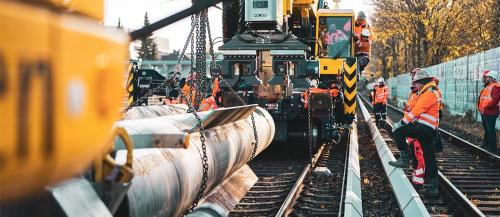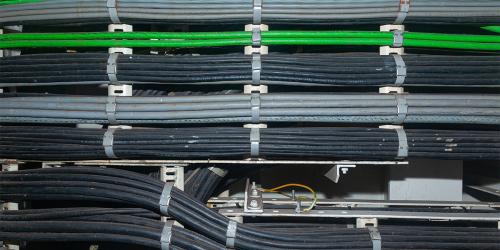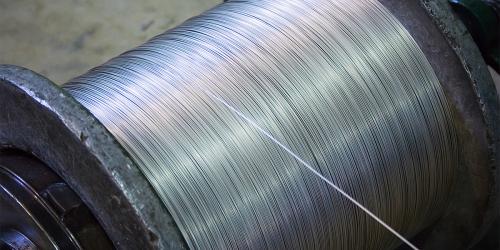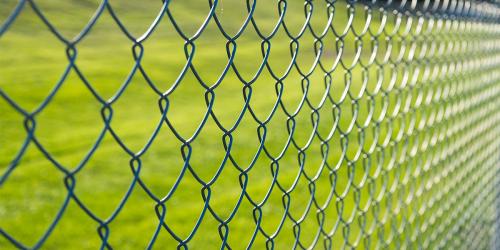Have you ever poured your heart and soul into a project, only to watch it slowly degrade to rust? It’s a common tale of frustration amongst DIYers and professionals alike. At BS Fixings, we understand the disappointment that comes from finding those once-shiny screws tarnished and weakened by corrosion. The struggle is real, and it’s why choosing the right screws from the get-go is more important than you might think. Nobody wants to see their hard work marred by unsightly rust or, worse, structural failure due to corroded fasteners, which is why we're here to help you out! In this blog, we’re going to explore a range of screws that stand the test of time and elements, ensuring your projects remain strong and rust-free for years to come.
Understanding Corrosion: The Enemy of Ordinary Screws
Corrosion is a natural process, where metals deteriorate due to chemical reactions with the natural elements in the environment. Traditional iron and carbon steel screws are particularly susceptible to rust when exposed to moisture and oxygen. Over time, this can lead to a loss of integrity in the fasteners, which is not only an aesthetic issue but can also compromise the structural stability of the entire project.
To protect your projects from the perils of rust, it’s important to choose screws manufactured from materials that are inherently resistant to corrosion. Here are a few that you can use:
Stainless Steel Screws
The stalwarts of rust resistance, stainless steel screws are the go-to choice for projects where corrosion could be a concern. The alloy used in stainless steel contains a minimum of 10.5% chromium, which reacts with oxygen to form a protective layer of chromium oxide on the surface of the metal. This layer acts as a barrier, preventing oxygen and moisture from reaching the underlying metal and thus preventing rust. This also makes them resistant to staining, making them suitable for both indoor and outdoor applications where looks and longevity are important.
| We offer a range of stainless steel screws, including our popular A2 Stainless Steel Pozidrive Countersunk Wood Screws. These screws are not only resistant to corrosion but also boast a self-centring design that ensures accurate drive control. This feature is particularly beneficial when working on large-scale projects, as it reduces operator fatigue and allows for consistent performance with repeated torquing. | 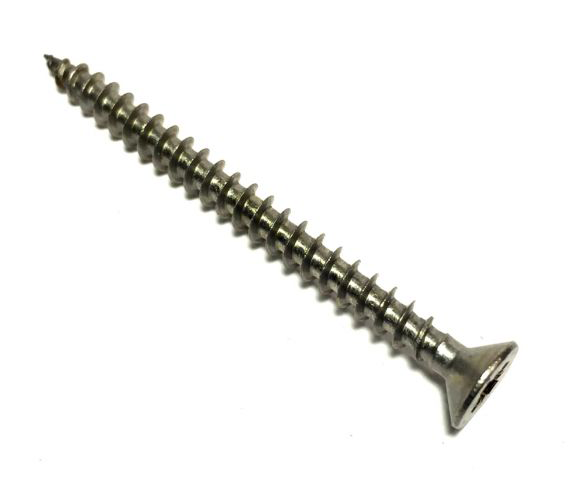
|
Galvanised Screws
Galvanised screws are another heavyweight contender in the battle against corrosion. These screws are coated with a layer of zinc through a process known as hot-dip galvanisation, where the screws are submerged in molten zinc to protect the underlying steel from rust. The robust nature of galvanised screws makes them perfect for use in environments exposed to weather elements, such as outdoor decking, fences, and roofing. Their ability to withstand harsh conditions without weakening makes them a cost-effective and reliable choice for projects that require longevity.
Brass Screws
Known for their golden colour, brass screws are more than just a pretty face. This alloy of copper and zinc has excellent corrosion resistance, especially in environments where water is present. Although they are softer than steel and may not be suitable for load-bearing applications, brass screws are perfect for decorative projects or where electrical conductivity is needed.
Silicon Bronze Screws
These screws are an alloy of copper, silicon, and other elements, offering superior resistance to corrosion, especially in marine environments. They are typically more expensive than brass but are stronger. Silicon bronze screws are often used in boat building, where exposure to water is a constant challenge.
Aluminium Screws
Lightweight yet strong, aluminium screws resist corrosion through the formation of a thin protective oxide layer. These screws are ideal for projects where weight is a concern and work well in environments with a risk of galvanic corrosion when paired with other metal types.
Zinc and ZYP Screws
Zinc-plated screws, including those with a zinc and yellow passivate (ZYP) finish, are known for their corrosion-resistant properties and aesthetic versatility. Through electroplating, these screws are coated with a thin layer of zinc, which serves as a protective barrier against moisture and oxygen. This process ensures the screws are better suited to withstand environmental challenges without compromising their appearance. The coating is relatively smooth, offering a cleaner, more polished look for projects where the finish is as important as the function.
The addition of a yellow passivate layer in ZYP screws enhances this protection further by adding a secondary barrier, ideal for when extra durability is required. This dual-layer protection makes ZYP screws an excellent choice for both indoor and outdoor applications where conditions might be more demanding. Whilst the zinc plating offers a bright, clean finish, the yellow passivate gives ZYP screws a distinctive yellowish tint, making them easily identifiable.
Choosing the Right Screw
Selecting the appropriate rust-proof screw involves considering the environment in which the screw will be used, the materials being fastened, and the aesthetic requirements of the project. Here are some factors to consider:
- Environment: will the screws be exposed to moisture, chemicals, or salt water? Choose a material that can withstand these conditions. E.g. stainless steel screws are versatile for both environments, offering both strength and corrosion resistance. For outdoor projects, especially in coastal areas, silicon bronze might be the better option due to its enhanced resistance to salt water corrosion.
- Load: how much weight or stress will the screws need to support? Ensure the material and design are suitable for the load they will carry.
- Aesthetics: are the screws going to be visible? If so, consider the colour and finish of the screw. Brass screws offer a decorative touch, making them suitable for cabinetry and furniture.
- Compatibility: make sure the screws are compatible with the materials they will be fastening to avoid galvanic corrosion, which can occur when dissimilar metals are in contact. Aluminium screws are ideal for fastening aluminium components, reducing this risk.
At BS Fixings, we pride ourselves on offering an extensive range of high-quality, rust-resistant screws. Dive into our collection of screws today and arm yourself with the best defence against corrosion. If you require any help in choosing the right type of screw for your project, please don’t hesitate to get in touch on 03330 117818.



